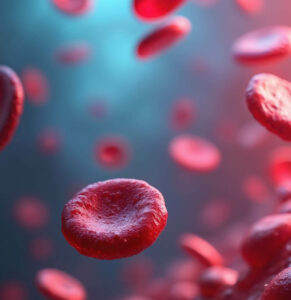Ketamine therapy is a new and potentially life-changing experience for so many patients. We’ve compiled a list of questions patients commonly ask about ketamine therapy in general and their experience at our clinic. If you have any further questions, we’re happy to be in touch.
About ketamine
What is ketamine?
Ketamine is a drug synthesized in 1962 by a chemist from the hallucinogenic drug phencyclidine (PCP). It acts on the NMDA-glutamate receptors of the brain by inhibiting their function. It can be given intravenously, intramuscularly, subcutaneously, intranasally, and as pills. Ketamine has been approved for use by the FDA as an anesthetic during surgery. Intranasal ketamine (esketamine) was approved in 2019 for use in treatment-resistant depression (TRD) with a newly initiated anti-depressant (meaning one that a patient had not taken before) and in 2020 as a standalone treatment for major depressive disorder and suicidal ideation and behavior.
If you’re having suicidal thoughts or know someone who is, help is available. In the US, call the National Suicide Prevention Lifeline at 1-800-273-8255.
What is esketamine?
Esketamine is the term for ketamine that is administered as a nasal spray. This form of ketamine is approved by the FDA to medicate treatment-resistant depression in patients who are also initiating a new antidepressant medication. It’s also approved to treat major depressive disorder and suicidal ideation and behavior. IV ketamine is a different form of ketamine than esketamine, but both are still ketamine and work the same way in the body.
Is ketamine FDA-approved?
Ketamine is approved by the FDA and the European Medicines Agency for some but not for all indications. It has been approved as an anesthetic since the 1970s. Intranasal ketamine (esketamine) was approved in 2019 for use in treatment-resistant depression (TRD) with a newly initiated anti-depressant (meaning one that a patient had not taken before) and in 2020 as a standalone treatment for major depressive disorder and suicidal ideation and behavior. IV ketamine, however, is not yet approved by the FDA and therefore is considered investigational.
Are ketamine clinics legal?
Ketamine clinics in the United States are legal if they follow the state’s scope of practice laws. Any clinic offering ketamine therapy must only prescribe the treatment for conditions for which ketamine treatment may help, such as depression and mood disorders. Furthermore, ketamine should only be administered to patients for whom it is deemed safe, and by an appropriate provider. Clinics must follow other standard procedures to ensure a safe experience for patients.
What is Ketamine Infusion Therapy?
Ketamine Infusion Therapy is a treatment that involves receiving ketamine intravenously (IV). Medicines and substances delivered intravenously are also called infusions. During this type of treatment, the patient typically sits in a reclining medical chair and receives an infusion of ketamine for approximately 40 minutes. Ketamine Infusion Therapy also involves creating a comfortable atmosphere. Patients often listen to relaxing music under dimmed lights during their sessions. To keep you safe, a licensed medical professional stays with you during the entire session to observe the treatment effects and monitor your vital signs, including heart rate, blood pressure and oxygenation. All of this counts as Ketamine Infusion Therapy.
Is ketamine addictive?
Ketamine is not an addictive substance, and no evidence shows that ketamine use in a controlled medical setting leads to substance abuse or relapses in patients. However, ketamine does have the potential for dependency, abuse, and addiction in certain people when used outside of a controlled medical setting. The doses of ketamine used today to treat depression are considerably lower than that used for anesthesia and by recreational users. We believe in a controlled medical setting, ketamine is safe and effective. If you’re unsure if ketamine is right for you, call us and we can answer any questions you may have.
What conditions does ketamine treat?
Ketamine can treat a range of medical conditions including mental disorders and chronic pain. At our clinic, we use ketamine infusions to treat adults with moderate to severe depression, bipolar disorder with managed mood stabilization, personality disorders (provided the individual can manage infusions and engage in therapy), post-traumatic stress disorder (PTSD) and obsessive-compulsive disorder (OCD).
About getting treated
Are there medications or diseases that prevent people from safely using Ketamine Therapy?
There are certain conditions that are contraindicated for ketamine therapy. If you had certain conditions in the past, they could preclude you from ketamine therapy. During a consultation, we’ll evaluate if ketamine is a safe option for you based on your individual medical history. For a full list of contraindicated conditions, click here.
Will ketamine help me if I have treatment-resistant depression?
Ketamine therapy is very effective in a controlled setting for treatment-resistant depression based on the research. At our clinic, we maximize efficacy by individualizing the treatment for each patient based on metabolic and genetic factors as well as patient history. Some patients however, do not respond to ketamine treatment. Ketamine therapy is not a guaranteed cure for depression, but it helps many patients suffering from a range of mental disorders.
How many ketamine treatments should a person receive?
Each person is different, so it’s hard to say for sure how many ketamine treatments a receptive individual should receive. Since ketamine signals the brain to create new connections, we try to maximize the effectiveness by suggesting patients begin with three treatments on three consecutive days. However, some people experience a marked improvement in symptoms of depression, anxiety, and post-traumatic stress disorder (PTSD) in as little as one or two sessions. Others might need more sessions to see the desired results. Our staff will help you decide what treatment plan is right for you.
Who administers the treatments?
IV ketamine treatments are all administered and overseen by a licensed professional in our office.
How much does a ketamine consultation and infusions cost?
A Ketamine Therapy consultation costs $250.
Laboratory and genetic testing are additional costs.
Enhanced ketamine infusions cost $450 per 40-minute infusion which includes 15-minute recovery monitoring.
What kind of payment do you accept?
We only accept credit/debit/FSA/HSA card payments. Medical treatments qualify for Flex Savings Account (FSA) and Health Savings Account (HSA) spending.
Will my insurance company cover ketamine infusion treatments?
Currently, insurance companies do not cover this treatment. However, in the future, this may change.






